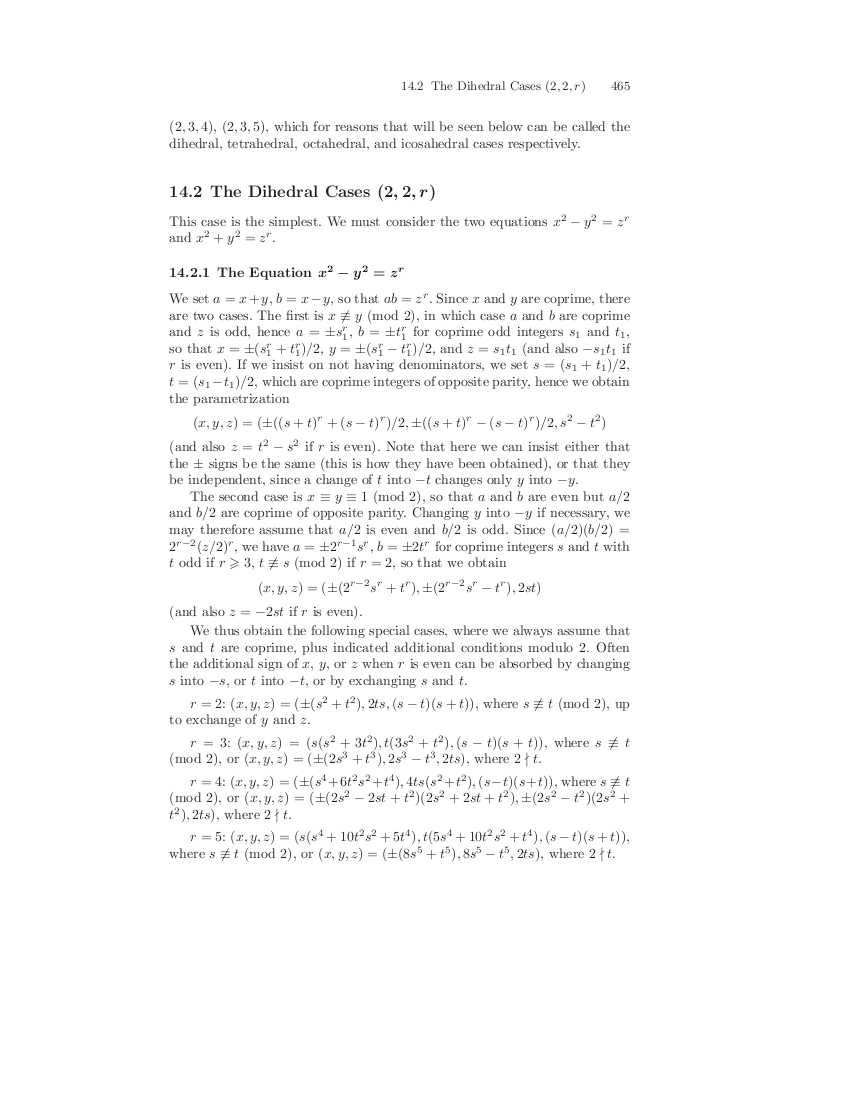The Diophantine equation $$x^2+y^3=z^2$$ has solutions $(\pm 1,2,\pm 3)$ and $(\pm 13,3,\pm 14)$.
Brown [Int. Math. Res. Not. IMRN 2012, no. 2, 423–436; MR2876388] states that "there are infinitely many parameterized solutions with $xyz \neq 0$ and $z^2 \neq 1$ when $n \leq 5$" to the equation $$x^2 +y^3 = z^n,$$ but does not give a reference. I am looking for a reference that catalogs all primitive solutions.

